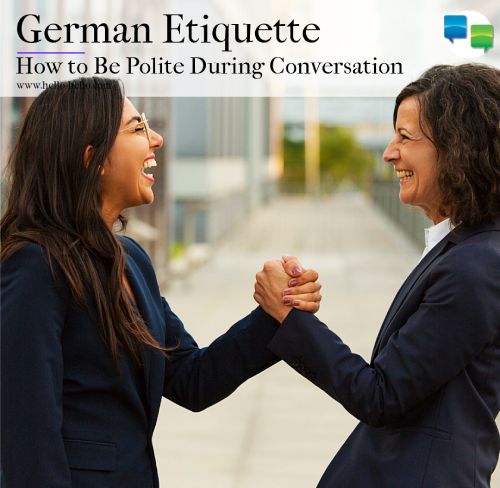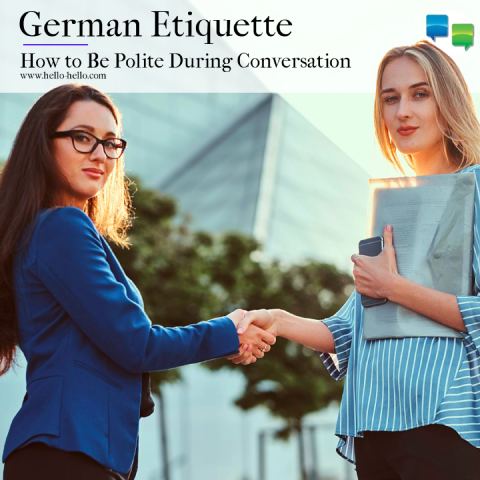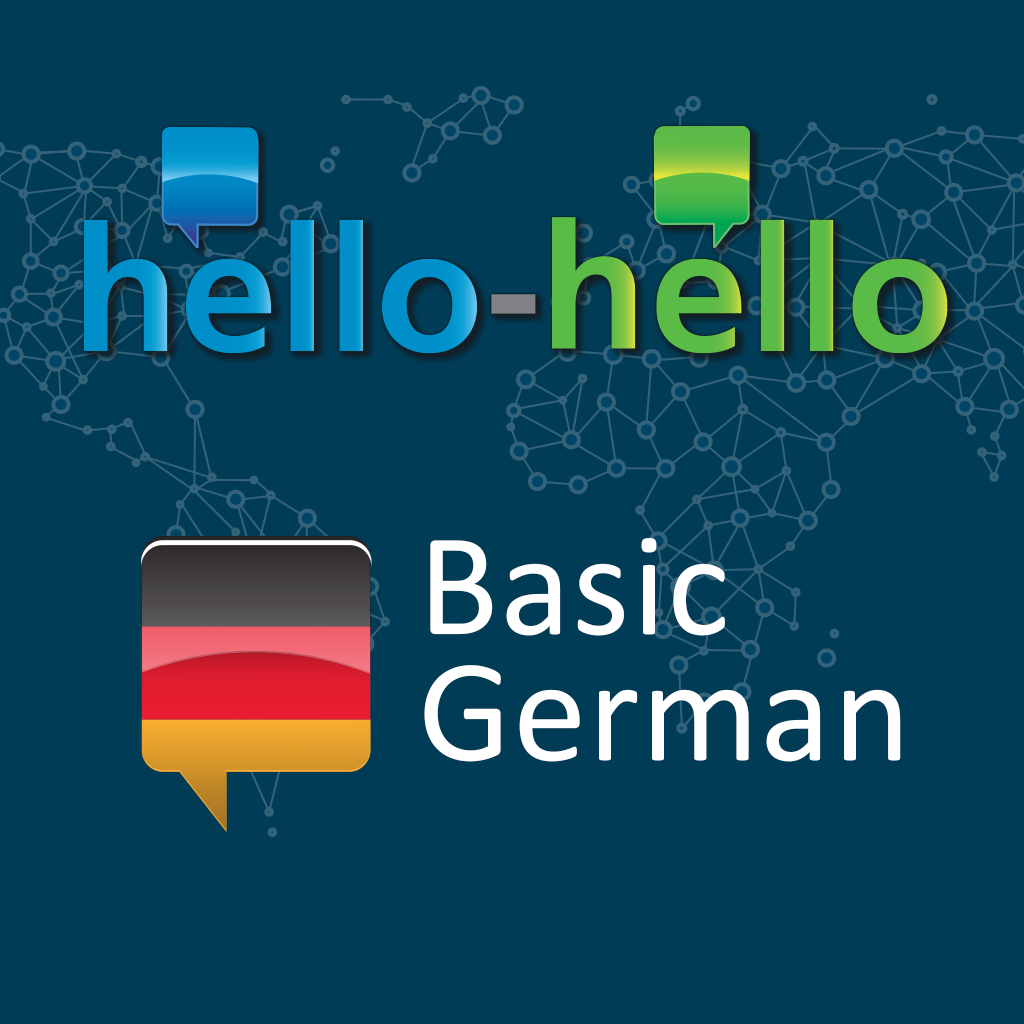German etiquette places a strong emphasis on politeness and respect in conversation, reflecting the country’s cultural values of orderliness and consideration for others. Whether you’re engaging in casual conversation or formal discussions, observing certain norms can help you navigate social interactions smoothly. Here’s a guide on how to be polite during a conversation in Germany in this blog from Hello-Hello Language on Go, the leading language learning app developer.
- Greeting: Begin conversations with a polite greeting, such as “Guten Tag” (Good day) or “Hallo” (Hello), accompanied by a handshake, especially in formal settings. Address people using their titles and last names unless invited to use their first names.
- Formality: Germans tend to value formality in their interactions, particularly in business or professional contexts. Use “Sie” (the formal “you”) when addressing strangers, older individuals, or those in positions of authority. Only switch to “du” (the informal “you”) if invited to do so.
- Eye Contact: Maintain direct eye contact while speaking or listening, as it’s seen as a sign of attentiveness and respect. However, avoid prolonged staring, as it can be perceived as intrusive.
- Punctuality: Germans value punctuality highly, so make sure to arrive on time for appointments and meetings. Being late without a valid reason is considered rude and disrespectful.
- Listening: Practice active listening by showing genuine interest in the conversation. Avoid interrupting others while they’re speaking and wait for your turn to contribute. Nodding and making appropriate verbal cues, such as “Ja” (Yes) or “Verstehe” (I understand), indicates that you’re engaged in the discussion.
- Directness: Germans tend to be straightforward and value honesty in communication. Be prepared for frank and direct feedback, especially in professional settings. However, it’s important to maintain tact and avoid being overly blunt or confrontational.
- Small Talk: Engage in small talk to establish rapport and build relationships, especially before delving into more serious topics. Common topics for small talk include the weather, travel, hobbies, and current events. Avoid discussing personal matters or controversial subjects, such as politics or religion, unless you’re certain it’s appropriate.
- Closing Conversations: When ending a conversation, it’s customary to offer a polite farewell, such as “Auf Wiedersehen” (Goodbye) or “Tschüss” (Bye). Shake hands again if it’s a formal setting. Express gratitude by saying “Danke” (Thank you) for the conversation.
By adhering to these etiquette guidelines, you can demonstrate respect and consideration for your conversation partners in Germany. Whether you’re engaging in casual chitchat or formal discussions, practicing politeness fosters positive interactions and helps you navigate social situations with ease.
Learn German (Hello-Hello)
Check out the new version of our German language learning app for iPhone and iPad. Hello-Hello German app offers a completely new and improved version of our app with animated videos, redesigned interface and additional features! Follow our adorable characters on a fun journey to learn German!
Seriously, this is now, by far, THE BEST language learning app available on iTunes 🙂
- Animated videos and comic strips.
- New games to practice reading and listening skills
- Cleaner and more friendly user interface
- Follow your course progress
- Take notes
- Receive notifications with lesson reminders. The more you practice, the more you learn!
- Receive notifications with new words to build your vocabulary



